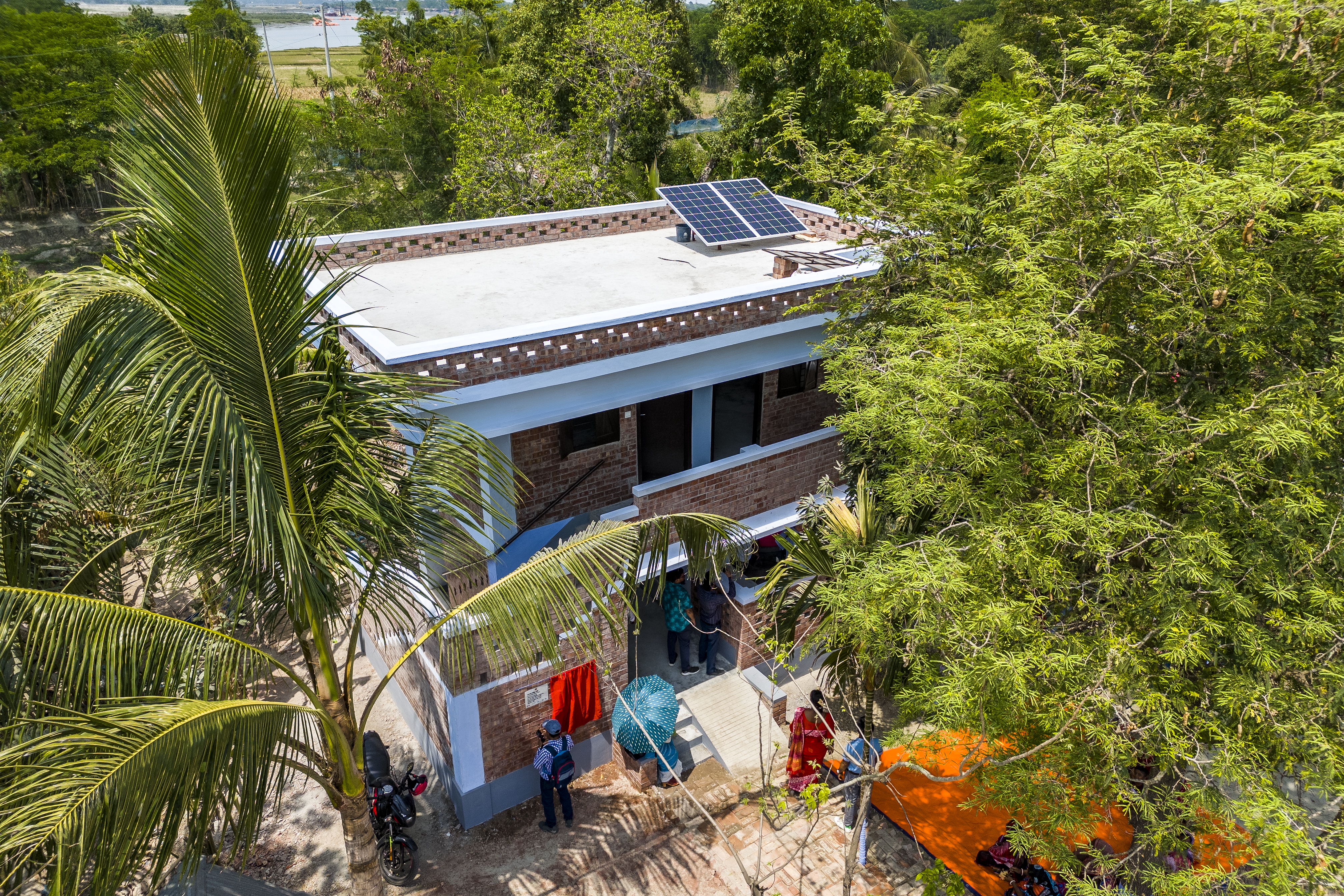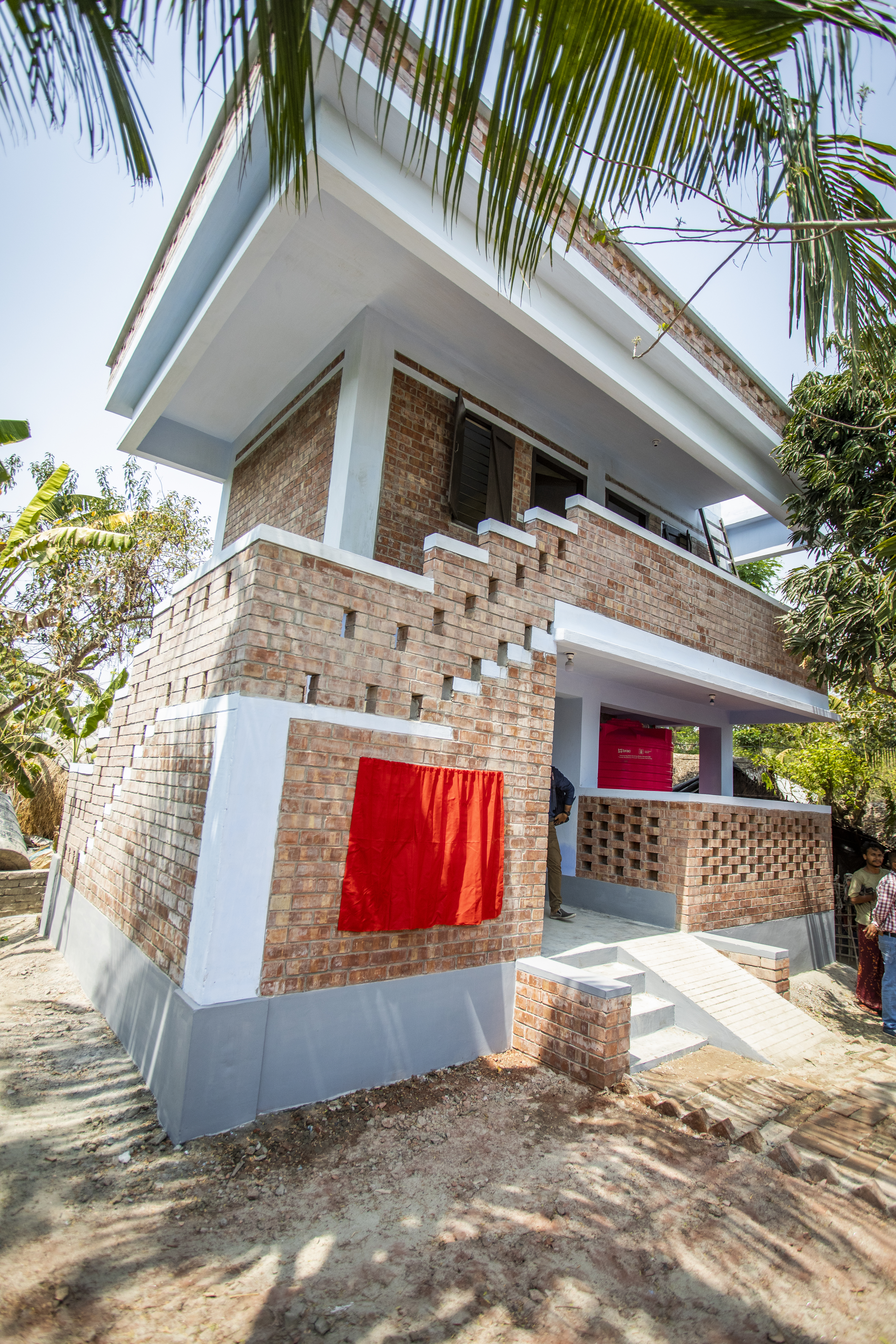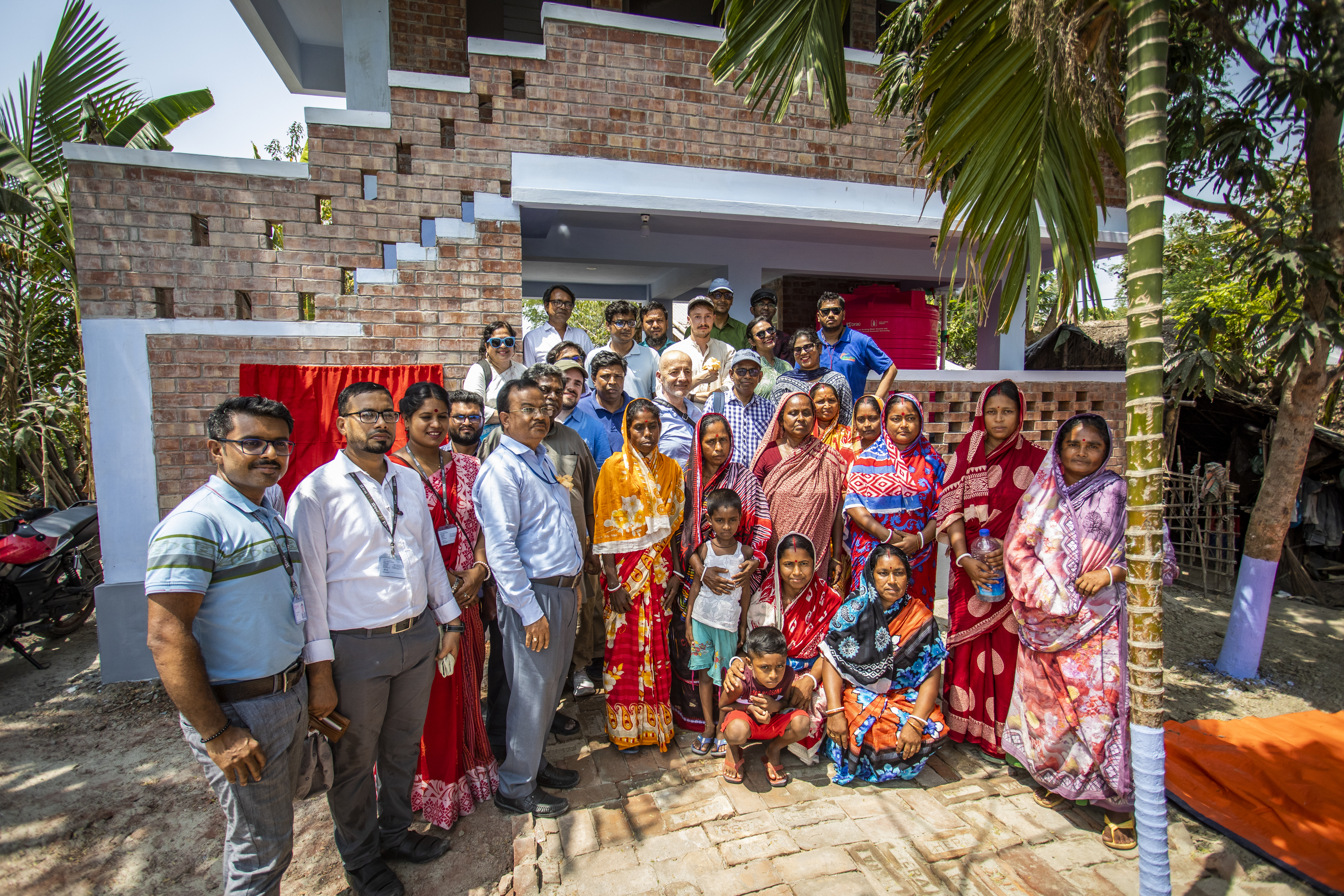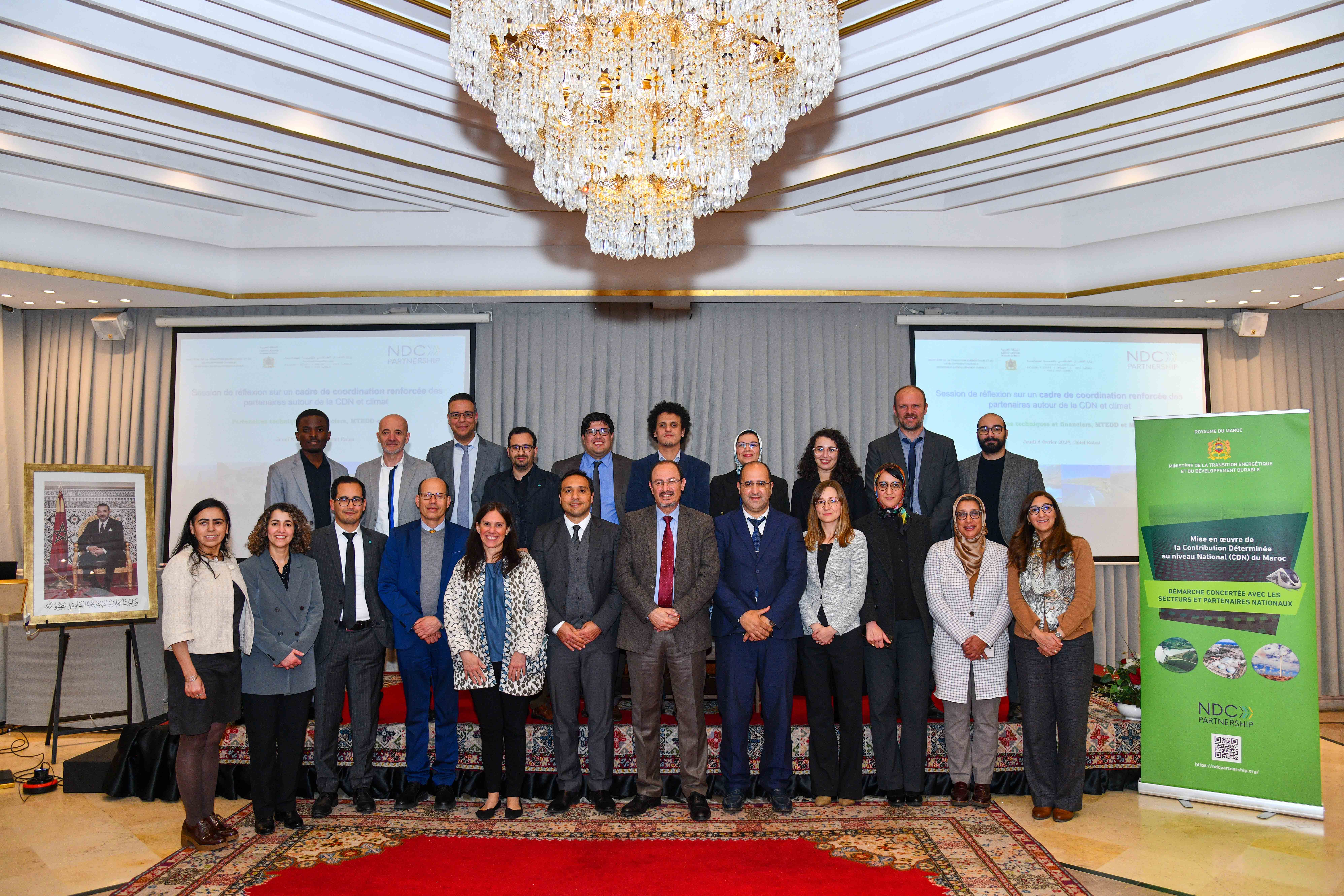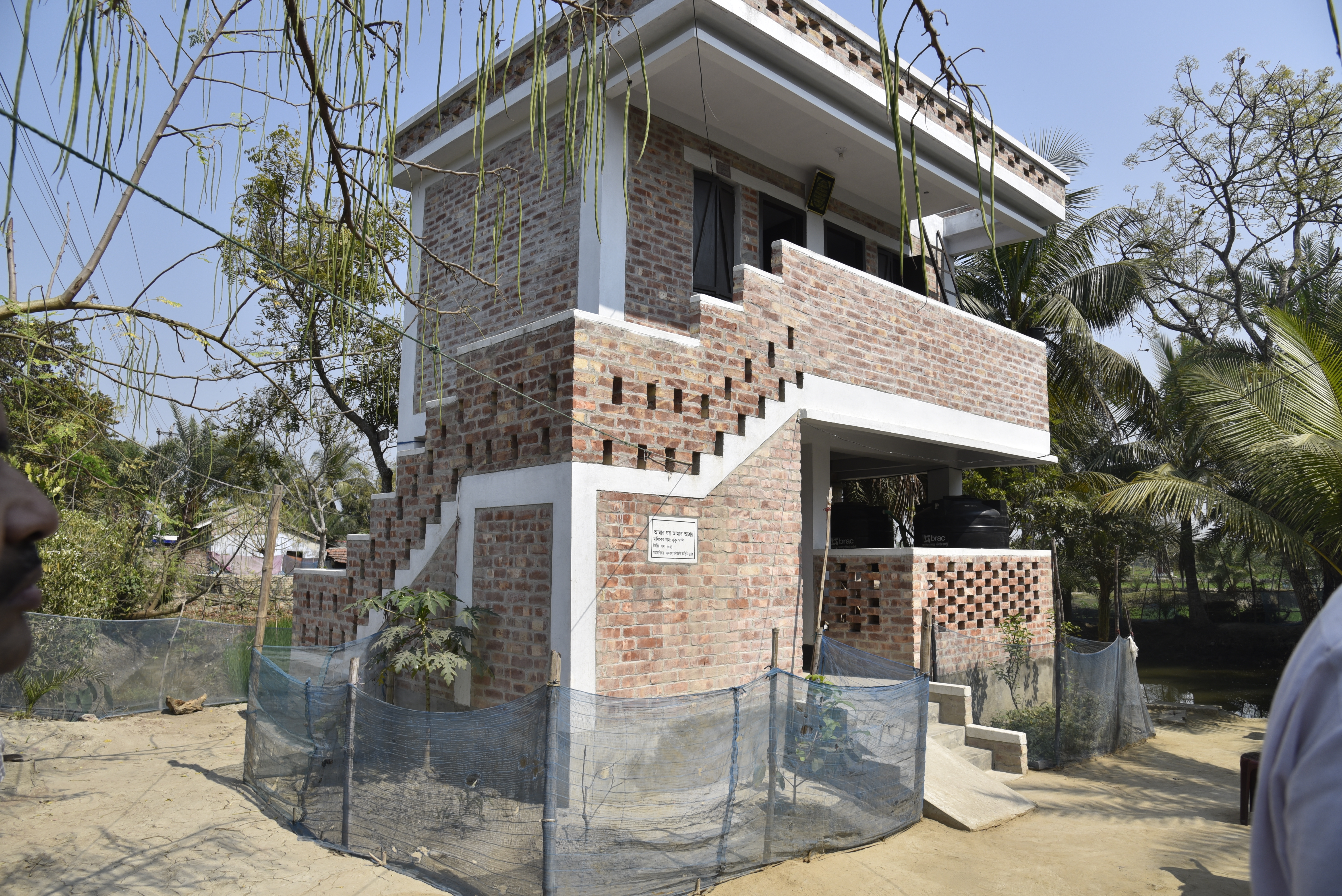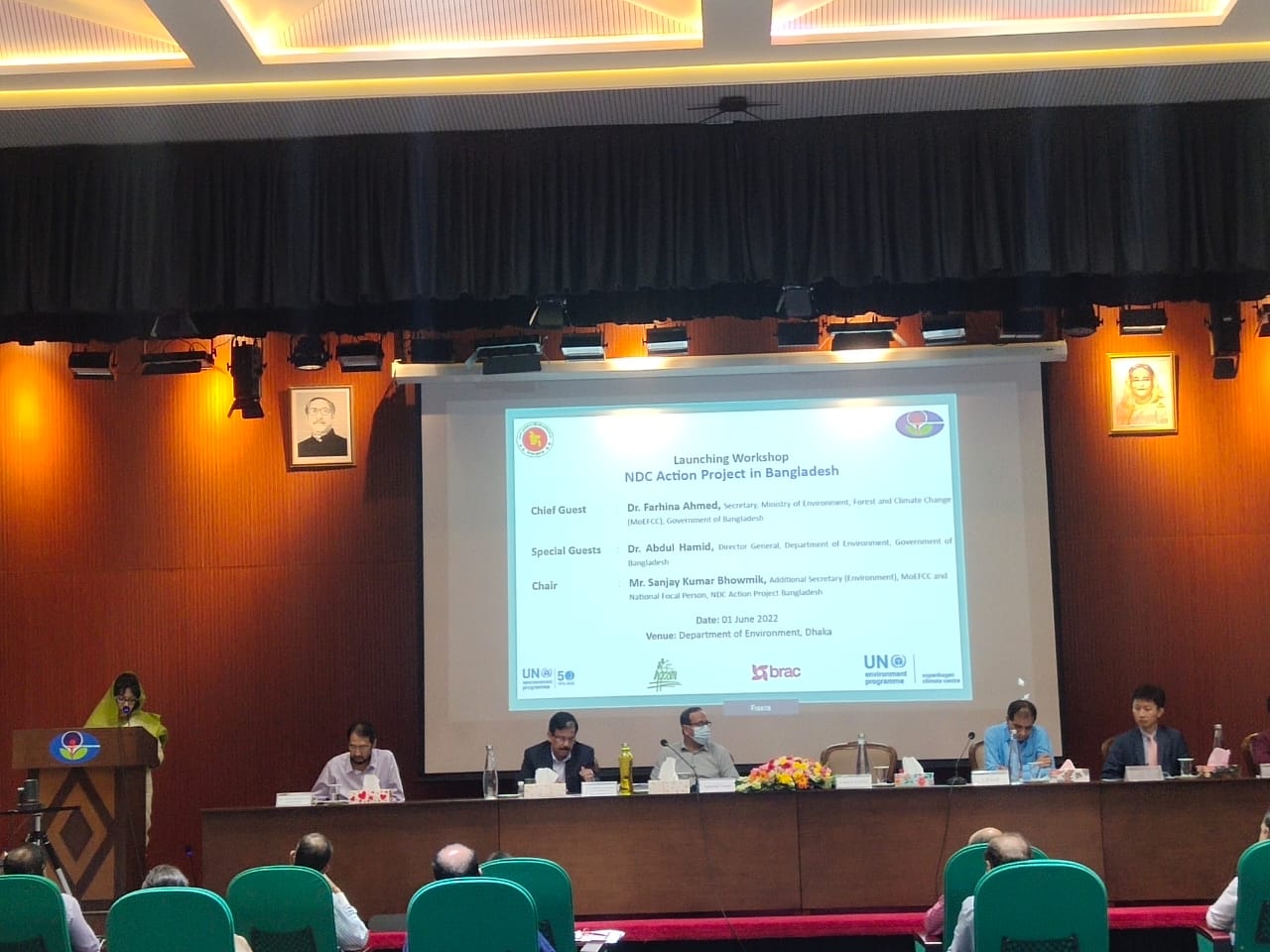Through a pilot project for climate-resilient housing in Bangladesh’s coastal zone, the NDC Action Project and BRAC are showcasing a new way to tackle the challenges posed by the climate crisis in Mongla Upazila in the Western part of Bangladesh.
Along with the Ministry of Environment, Forest and Climate Change, who is the country focal point for the NDC Action Project, experts from UNEP, UNEP Copenhagen Climate Centre and BRAC visited the site of the pilot housing project during a mission which included both finance training and technical advisory meetings this month.
With a focus on scaling up climate adaptation efforts, the pilot housing project highlights Bangladesh’s commitment to translating its NDCs into tangible actions, paving the way for sustainable development in vulnerable coastal communities.
The Ministry of Environment, Forest, and Climate Change will now be assisting in scaling up this model through the coastal regions of the country, based on BRAC’s experience and the NDC Action pilot.
Adaptation to cyclones and storm surges
The coastal zone covers around a third of Bangladesh, and increasing climate resilience in coastal areas is directly mentioned in the country’s NDC.
In Mongla upazila, a climate-vulnerable area in the coastal belt of south Bangladesh, people are already facing incremental challenges from frequent cyclones and storm surges resulting in loss of life and livelihoods as well as critical damage to infrastructure.
Jérôme Malavelle, UNEP NDC Action programme manager, found the concept of the resilient coastal housing pilot impressive and very promising, noting that multiple social and environmental dimensions were factored in to reinforce people’s safety, health and economic conditions, not only for the house owner but also her neighbors.
He also highlighted that the housing pilot is a government-backed concept and that several funds, which were established by the Bank of Bangladesh, are now available to support the deployment of such green housing concepts for both urban and rural settings.
A community shelter from sustainable and locally sourced building materials
The house is based on BRAC’s extensive experience in designing and building climate-resilient housing across Bangladesh in both urban and rural settings. The houses are especially designed for vulnerable populations to respond to climate-induced disasters and long-term changes resulting from climate change.
Even though the low-cost resilient housing is designed as a unit for an individual family, it also serves as a mini cyclone shelter, able to accommodate up to 45 people as well as provide shelter for livestock on the ground floor.
Using sustainable and locally sourced materials with standard specifications, the house also includes a rainwater harvesting system as well as provision of renewable energy generation through solar installations.
The design of the low-cost Climate Resilient Housing model is approved and owned by the Government of Bangladesh.
Finance training and technical advisory
As part of the NDC Action project’s trip to Bangladesh, a two-day finance dialogue and training provided guidance on climate finance, and relevant aspects to consider in developing funding proposals for climate action.
The training focused on renewable energy, energy efficiency, and adaptation and included presentations by major banks and the Ministry of Environment, Forest and Climate Change.
During the trip to Bangladesh, the NDC Action project team also attended the 5th Technical Advisory Committee (TAC) chaired by Iqbal Abdullah Harun, additional secretary, Ministry of Environment, Forest, and Climate Change.
During the TAC meeting, Md Liakath Ali, PhD, Director of the Climate Change Programme at BRAC, said Bangladesh is one of ten countries receiving support in translating their NDCs into concrete strategies and actions by the NDC Action Project. In Bangladesh, one of the focus areas for the NDC Action project has been mainstreaming climate resilience in coastal areas, which is also a priority of NDCs.
The work done with BRAC in piloting climate-resilient housing for coastal communities is a key component of these efforts, he added.
